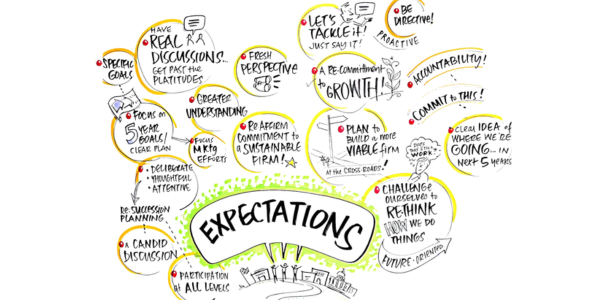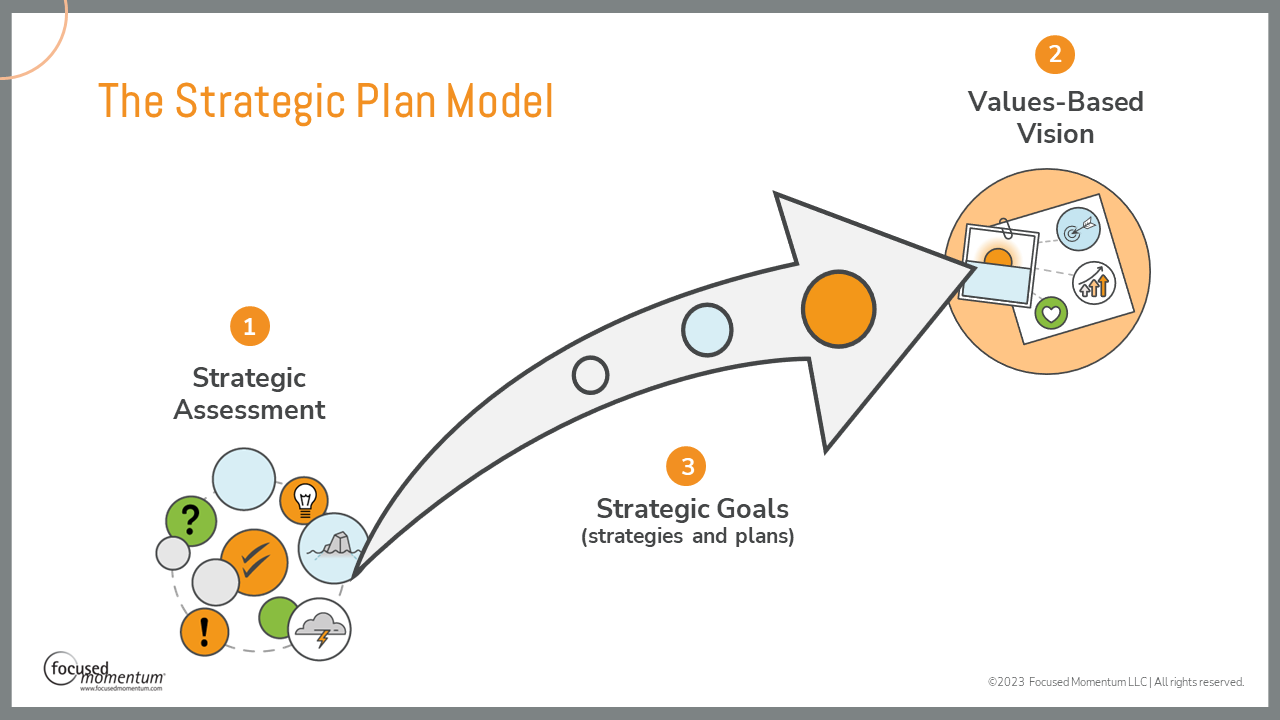What are the steps in strategic planning?
Strategic Planning requires a different thinking mindset than the mindset required for managing. We call the thinking needed for strategy development...

“Gain a fresh perspective.”
“Have REAL discussion – get past the platitudes.”
“I want candid discussions.”
“Gain a clear idea of where we are going in the next five years.”
“Challenge ourselves to rethink how we do things. “
“Recommit to growth.”
If these expectations are expressed by the participants of your next strategic planning effort, would you be able to meet all of them?
Strategy discussions can be very challenging to pull off even if the expectations are specific and well defined by the organizers. Often those organizing the process have very different goals than the expectations of the participants. It is very frustrating to be in the final stages of planning discussions and to have someone ask, “When are we going to discuss ‘x’?” X was never on the agenda, and you never anticipated needing to think through it.
How do you avoid this planning pitfall? Here are three time-tested practices for you.
Gather: Conduct a survey, focus group or brief set of interviews with your participants before you start organizing your agenda. We use one simple question to briefly gather input on how to prepare for a successful process: “If this planning effort is wildly successful, what would happen in it or as the result of it?” Don’t debate - listen and compile. You may not be able to address all that your gathering collects, but you will be more informed on to how to structure your strategy discussions.
Orient: As you open your first group session, clarify the purpose and desired outcomes for this planning effort. This should paraphrase much of what you gathered from your query in step one. However, it should also connect those needs with your business and management needs and provide a high-level orientation to how you intend to move from discussion to plans to resource allocations. Ideally, it should lay out what you want to accomplish and how you plan to do it.
Ask everyone to share their expectations. This is when you would produce your own expectations chart like the one pictured in this post. After you orient participants to your planning process (#2 above), immediately ask all participants to express their expectations and record them for everyone to see. This does two things: First, it forces their minds into the room and on to your planning effort. Second, it allows you to hear expectations that you do not plan to address right from the start. Once everyone has shared, go back and note these statements that will not be addressed and provide some insight as to how or when he or she will be. Pause and clarify anything expectation you will not meet before moving on to your agenda.
Taking these steps to gather perspectives and set expectations will significantly improve how effective your participants will view the process, and it will give you the opportunity to playfully vent your frustration with “Why didn’t you express this earlier.” If someone says at the end of the process, “Wait, when are we going to discuss ‘x’?”.
Remember, we are always here to help design, conduct or coach you through your next planning effort.

Strategic Planning requires a different thinking mindset than the mindset required for managing. We call the thinking needed for strategy development...

Last week I wrote a post on creating a strategic thinking discipline to accommodate the ever-changing environments we all live and work in today: Is...

In their Harvard Business Review article, Don’t Let Metrics Undermine Your Business, authors Michael Harris and Bill Tayler explore this question by...